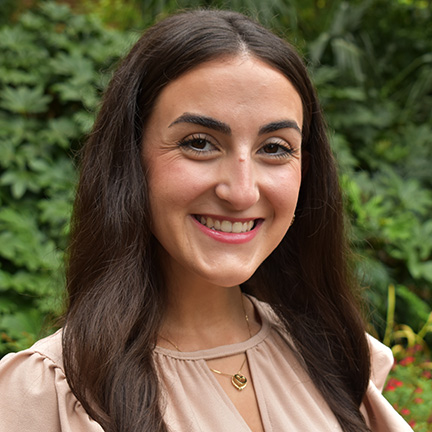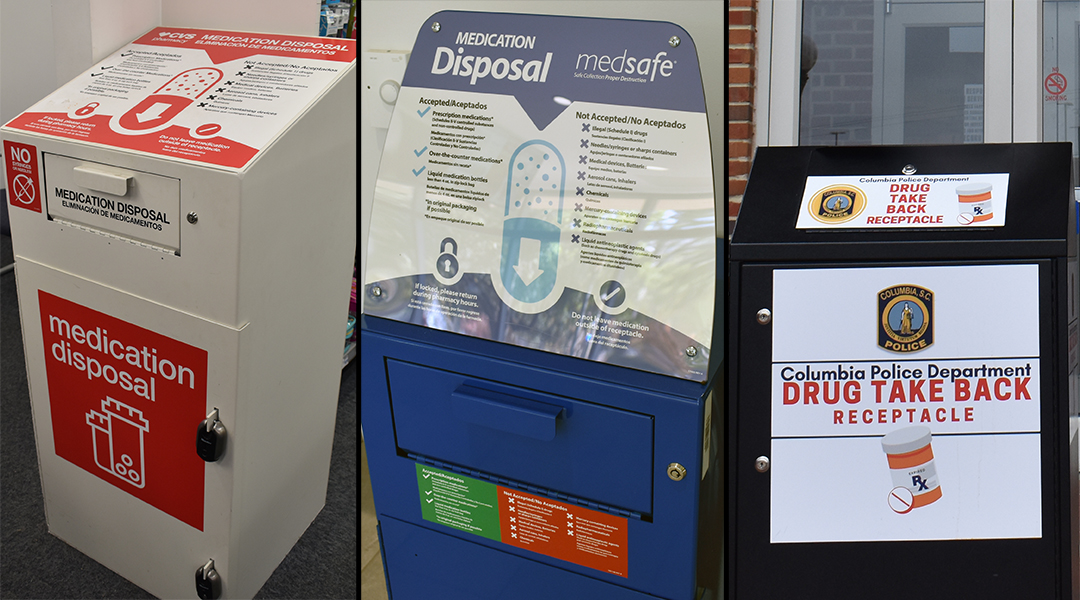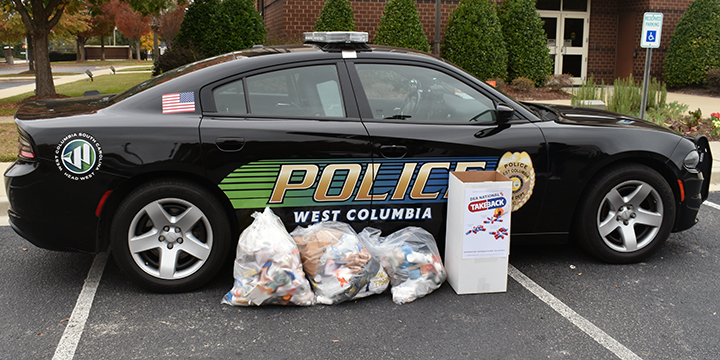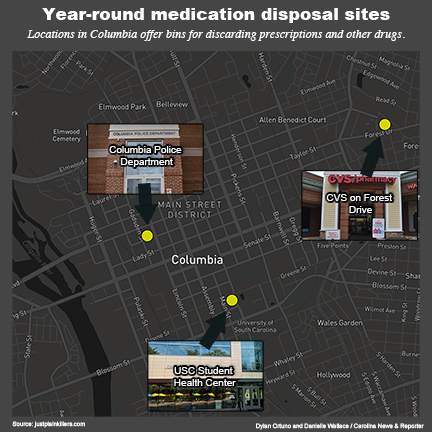The CVS on Forest Drive, USC Student Health Center, and Columbia Police Department all offer year-round medication disposal. (Photos by Dylan Ortuno)
People who aren’t sure what to do with their expired prescription drugs don’t have to look far.
Local organizations are keeping medications out of waterways — and out of the wrong hands — with drop-off bins. South Carolinians are taking advantage of that during two National Prescription Drug Take Back Days each year.
In April, the federal Drug Enforcement Administration collected 7,200 pounds of medications at 67 different sites in the state. Nationwide, it collected 721,093 pounds — or 360 tons — of medications.
“The purpose is to get those medications out of the homes so that they don’t get into the hands of people that shouldn’t have it, whether it be children (or) unfortunately theft,” said Lara Peck, the injury prevention coordinator at Prisma Health Richland Hospital.
The best way to dispose of both prescription and over-the-counter medications is at a disposal site, according to the Federal Drug Administration. If someone is unable to get to a drop-off location, the next best option is flushing medications found on the FDA’s “flush list” and throwing away others not listed.
On Saturday, for the most recent Take Back Day, participating drop-off spots offered bins for unused prescriptions. Sites included Prisma Health and Lexington Medical Center.
“We want to make sure that, you know, (the medicines are) disposed of properly,” Peck said. “We don’t want pills being flushed down the toilet, put into the landfills (or) thrown in the trash.”
Neither Prisma Richland nor the Lexington Medical Center provide year-round drop-off bins. But other places around the Midlands, such as the University of South Carolina’s Student Health Center, the Columbia Police Department and the CVS on 4711 Forest Drive, have permanent disposal bins.
Aside from the fact that the strength decreases over time, taking old medication can be risky. Using expired medicine can lead to bacterial growth and antibiotic resistance, according to the FDA.
“When we give prescription medications out, these have to be approved specifically for a single patient for a specific indication,”said Dawn Jensen, a pharmacy resident at Lexington Medical. “So when you have medications out there (and the directions for use have) changed or maybe the patient doesn’t need it anymore, well, then, essentially the purpose of that medication … goes away.”
ABOUT THE JOURNALISTS

Danielle Wallace
Wallace is a journalism major at the University of South Carolina minoring in English. The Charleston native recently covered a drag queen bingo event as part of her interest in diverse communities. An Italian from Boston at heart, Wallace is drawn to tales of loved ones uniting in times of tribulation.

Dylan Ortuno
Ortuno is a senior journalism major and computer science minor at the University of South Carolina. He is the editor in chief of the Gaming Collegian, a gaming and technology-focused multimedia club on campus. He is also a sports writer for The Daily Gamecock focused on club sports. Ortuno has covered a variety of topics ranging from trading card shops to how USC’s Cocky’s anthropomorphic body would perform as an athlete.




